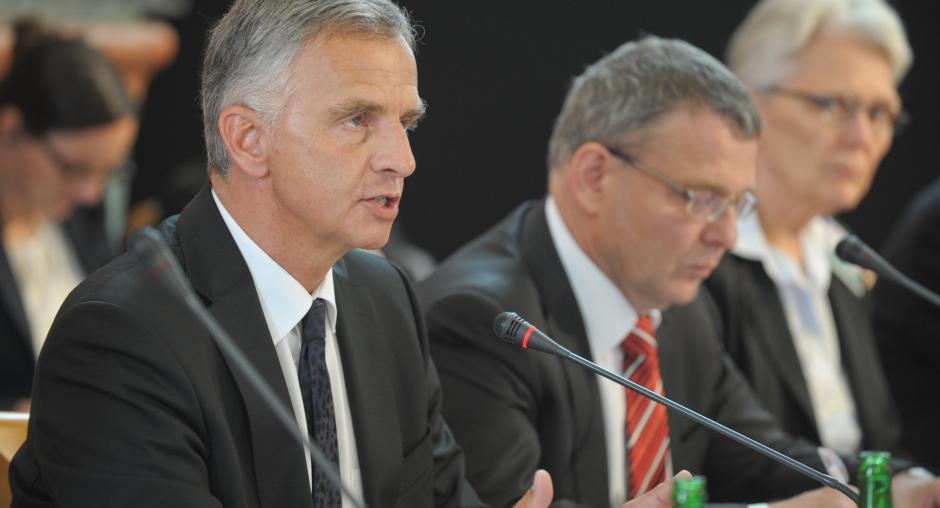Enhanced efforts needed to prevent, mitigate, and respond to natural disasters, say OSCE forum participants in Prague

PRAGUE, 10 September 2014 – With natural disasters more frequent and destructive, greater impetus and enhanced efforts are needed by States to work together to better prevent, mitigate, and respond to this threat, said senior officials and experts at the concluding meeting of the 22nd OSCE Economic and Environmental Forum, which opened in Prague today.
The three-day Forum brings together representatives of OSCE participating States, civil society, international organizations, business and academia.
Opening the meeting, OSCE Chairperson-in-Office and Swiss Foreign Minister Didier Burkhalter said that “there is a strong case for making more use of the OSCE to strengthen co-operative security in the economic and environmental field.” He underlined that disaster management could be a means of strengthening co-operation. “The challenges of disasters triggered by natural hazards can mobilize people to work together, and thus help build confidence beyond borders and despite conflicts.”
Acknowledging the OSCE as an important platform for dialogue, Burkhalter proposed to strengthen disaster prevention, to pursue an integrated disaster risk management approach and to facilitate cross-border engagement.
OSCE Secretary General, Lamberto Zannier, said that the OSCE’s broad membership of 57 participating States means that the Organization is well placed to facilitate joint efforts by States in preventing and responding to natural disasters.
“Disasters do not respect boundaries,” he said. “The increasing intensity and frequency of extreme weather events along with the risks of other natural disasters in the OSCE region and the world as a whole oblige States to intensify their efforts in disaster risk reduction and look for solutions, based on regional and sub-regional co-operation.”
Margareta Wahlström, United Nations Special Representative of the Secretary-General for Disaster Risk Reduction, said that the threat posed by natural disasters is no longer limited to human mortality. The immense financial cost of natural disasters is beginning to bite national economies.
She added “The OSCE’s voice is important for the debate now taking place on the post-2015 Development Agenda. This comprises a new set of sustainable development goals, a climate agreement and a revised framework for disaster risk reduction. Ideally, these should all be inter-dependent and mutually reinforcing”
Thomas Stocker of the University of Bern and Co-Chair of Working Group I of the Intergovernmental Panel on Climate Change (IPCC), said States need to bring the focus on prevention, through the sharing of information and research, and international co-operation.
Participants of the Forum will develop recommendations for increasing security and stability through reducing the risk environmental disasters pose by promoting inter-State and regional co-operation.
The meeting builds on the results of two preparatory meetings held in Vienna and Montreux, Switzerland in January and May this year.
